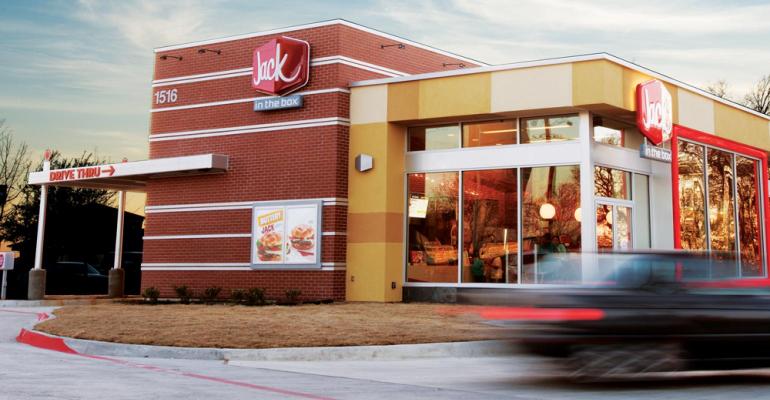With a new executive team largely in place, Jack in the Box is preparing to announce a new strategy in the coming months that will include a better relationship with franchisees, CEO Darin Harris told investors during the quick-service chain’s first-quarter earnings call Thursday.
“Jack cannot succeed unless our franchisees succeed,” Harris said. “I like to think of it as a race, and historically we have passed the baton to the franchisee at the 4th leg and asked them to cross the finish line. Now we’re bringing them to the starting line with us. By doing so, we have reenergized the relationship, and look forward to seeing this transpire into further growth of the Jack in the box brand.”
Harris joined Jack in the Box last spring, as the San Diego-based company faced conflict with franchisees who had sued the parent company for, among other things, lack of cohesive strategy.
That conflict was resolved last November, and since then Harris has worked on shaping his own executive team, most recently with a new chief financial officer, Tim Mullany and chief marketing officer, Ryan Ostrom.
Harris said a search for a new chief operating officer was still in progress.
He said many franchisees had expressed an interest in expanding, and he anticipated between 20 and 25 restaurants would open over the course of 2021. Three new restaurants opened in the first quarter, although 10 closed, according to the company’s earnings statement. Four franchised locations also were purchased by the parent company during the quarter, so as of the end of the first fiscal quarter, Jan. 17, 2021, there were 148 company-owned restaurants and 2,097 franchised restaurants.
The chain reported 12.5% increase in same-store sales for the quarter, driven by higher average checks — its best performance since 1994. Net earnings were $50.9 million, or $2.21 per share, on revenue of $339 million. That’s compared to earnings of $7.9 million, or 33 cents per share, from revenue of $308 million, in the first quarter of 2020.
That growth was driven by increased average checks as customers bought more premium items, including improved chicken strips, the Cluck Sandwich, the breakfast platter and the Ultimate Cheeseburger. Tiny Tacos, which were introduced as a permanent menu addition last January, continue to contribute to incremental sales, he said.
At company-owned locations, average checks were up by 21.2% while the number of transactions were down by 13.7%, according to the earnings statement.
Harris credited his operations and marketing teams for adjusting quickly to the changes wrought over the past year.
“We have certainly learned a lot about where consumers are headed during this pandemic: The continued importance of digital, the consolidation of transactions to drive higher check gains and the desire for craveable and snackable items,” he said. “Jack pivoted early in the pandemic to capitalize on changing consumer trends, including changing media placements, leaning into delivery and offering new flavorful and portable menu items. Many of these consumer trends held strong through our first quarter.”
Elaborating on the chain’s media strategy, he said, “The media team has remained extremely nimble, capitalizing on shifts in consumer consumption trends around gaming and video content to really meet the consumer where they are during this time. We have increased our social media presence and converted all sports sponsorships into digital formats.”
Mullany added that same-store sales trends had been consistent in the first part of the second quarter.
Contact Bret Thorn at [email protected]
Follow him on Twitter: @foodwriterdiary





